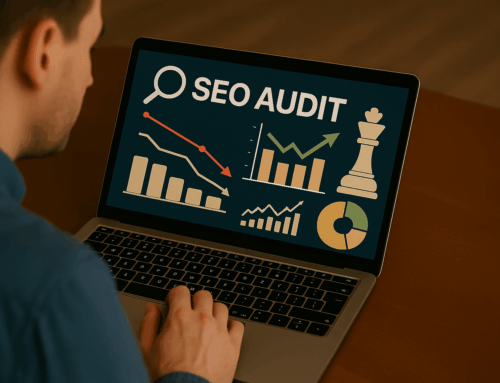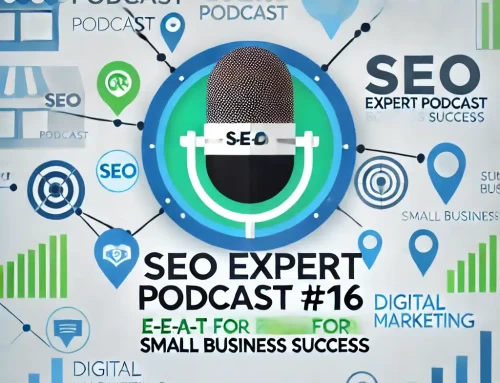Discover the Power of Enterprise SEO for Your WooCommerce Store
Consider this: Your WooCommerce store is a hidden gem waiting to be discovered. Remember Sarah, the boutique owner? With the appropriate SEO, she was able to change her store and increase sales dramatically. Now, let’s make it your tale.
Why SEO Is Important for Your WooCommerce Store
The goal of this post is to assist WooCommerce store owners with actionable ideas for improving their online exposure, driving more traffic, and eventually increasing sales through efficient SEO practices. You may use SEO to make your online store into a revenue-generating powerhouse.
Which Keywords Should You Target?
Keyword Treasure Hunt: Find profitable keywords that your clients are searching for.
The first step in developing an effective SEO strategy is keyword research. This technique entails identifying high-profit keywords that your target consumers are searching for. Use Google’s Keyword Planner, Ahrefs, or SEMrush to locate keywords with high search volume but low competition. Concentrate on long-tail keywords relevant to your products. For example, instead of simply “shoes,” say “handmade leather shoes” or “vegan running shoes.”
- Use a combination of short and long-tail keywords.
- Analyze competitor keywords to identify gaps.
- Consider seasonal trends and use relevant keywords.
How Do You Optimize Product Pages?
On-Page Magic: Create enticing product pages by optimizing titles and descriptions.
Once you’ve determined your keywords, the following step is to optimize your product page. Ensure that each page has a distinct title tag, meta description, and header tags that contain your target keywords. Your product descriptions should be entertaining, informative, and naturally use keywords.
- Use high-quality photos with detailed alternative text.
- Include customer feedback and ratings.
- Make sure your product pages are straightforward to navigate.
How Can You Improve Your Website’s Performance?
Tech Tune-Up: Make sure your website loads quickly and is mobile friendly.
Site speed and mobile friendliness are important ranking considerations. A sluggish website can annoy users and cause significant bounce rates. Use Google PageSpeed Insights to discover and resolve speed issues. Make sure your WooCommerce store is responsive and offers a seamless mobile experience.
- Compress pictures to reduce load times.
- Choose a reputable hosting company.
- Implement a Content Delivery Network (CDN) to accelerate content delivery.
What Type of Content Should You Create?
Create compelling blogs, how-to instructions, and user-generated content.
In the realm of SEO, content reigns supreme. Regularly update your website with new, valuable material that answers your consumers’ inquiries and solves their problems. This could take the shape of blog posts, how-to tutorials, videos, or user-generated material like reviews and testimonials.
- Create a blog and post regularly.
- Create how-to instructions for your products.
- Encourage customers to write reviews and share their experiences.
How to Create High-Quality Backlinks?
Link Building Power: Connect with influencers and bloggers to create high-quality backlinks.
Backlinks from credible websites can greatly improve your SEO. Contact influencers and bloggers in your industry to promote your items. Participate in guest blogging and develop shareable content that will automatically generate links.
- Develop ties with influencers in your field.
- Offer to write guest posts for reputable blogs.
- Make shareable infographics and movies.
How to Conduct an SEO Audit
SEO Expert Insights: Conduct regular SEO audits on your website.
An SEO audit can help you detect issues that are harming the performance of your website. Conduct a full audit using tools such as Screaming Frog, Ahrefs, or SEMrush. Check for broken links, duplicate content, and that all pages are correctly indexed.
- Regularly update and submit your sitemap to Google.
- Fix broken links and improve internal linking.
- Ensure that your website is devoid of duplicate content.
The Top 15 Most Popular E-Commerce SEO Consultancy FAQs
1. What is the WordPress SEO for WooCommerce?
WordPress SEO for WooCommerce entails optimizing your WooCommerce store to appear higher in search engine rankings.
Keyword research, on-page SEO, technical SEO, and content production are examples of tactics used to optimize a WooCommerce store on WordPress. Begin by ensuring that your site’s structure is clear and easy to navigate. Use SEO plugins such as Yoast SEO to manage meta titles, descriptions, and other important SEO components. Optimize your product descriptions with relevant keywords, and ensure that your photographs include descriptive alt text.
- Use breadcrumbs to make navigation easier.
- Implement schema markup for products.
- Regularly update your material to keep it current and relevant.
2. How is Enterprise SEO for WordPress different from regular SEO?
Enterprise SEO for WordPress includes comprehensive tactics and tools for managing and optimizing large-scale websites.
Unlike ordinary SEO, enterprise SEO focuses on high-traffic websites that necessitate scalable approaches. This entails managing a complex site design, optimizing for a huge number of keywords, and using advanced data analysis and automation technologies. Robust keyword management, content scaling, and advanced technical SEO are all critical components.
- Use enterprise-level SEO tools such as BrightEdge and Conductor.
- Set up automatic reporting and monitoring systems.
- Focus on optimizing for a diverse set of keywords and content.
3. Why Should I Hire an SEO Expert for My WordPress Website?
An SEO specialist can give specialized expertise and experience to help your website rank higher in search engines.
SEO experts are up to date on the most recent SEO trends, algorithms, and best practices. They may conduct thorough audits, identify areas for development, and implement successful techniques to increase your website’s visibility. Hiring a professional ensures that your SEO efforts are focused and efficient, resulting in greater outcomes.
- Look for SEO experts who have previous experience in your sector.
- Ensure that they produce clear reports with measurable results.
- Consider their strategy for both on-page and off-page SEO.
4. What Does a WordPress SEO Audit Involve?
A WordPress SEO audit is conducting a thorough review of your website to identify and resolve SEO issues.
During an SEO audit, specialists will examine your website’s structure, on-page SEO, technical SEO, content quality, and backlink profile. The goal is to discover areas for improvement and devise a strategy to boost your site’s performance.
- Use tools like SEMrush or Ahrefs to do a thorough audit.
- Check for broken links, duplicate material, and sluggish loading speeds.
- Regularly update your audit to reflect changes in SEO best practices.
5. How Do I Improve WooCommerce’s On-Page SEO?
Improving on-page SEO for WooCommerce entails improving individual product pages for search engines.
Ensure that each product page has a distinct title, meta description, and header. Use important keywords naturally throughout the content. Optimize photographs with descriptive alt text, and make sure the product descriptions are detailed and compelling.
- Structured data can help to improve the appearance of search results.
- Include customer reviews and ratings.
- Make use of internal links to other related products.
6. What Are the Advantages of Using SEO Plugins for WooCommerce?
SEO plugins can help you optimize your WooCommerce store for search engines.
Plugins like as Yoast SEO and All in One SEO Pack provide tools for managing meta tags, creating sitemaps, and analyzing content for SEO. They can provide useful information and ideas for improving your on-page SEO efforts.
- Select a plugin that fits nicely with WooCommerce.
- Regularly update the plugin to ensure compatibility and security.
- Use the plugin’s features to improve every area of your website.
7. How Important is Mobile Optimization in WooCommerce SEO?
Mobile optimization is critical for WooCommerce SEO because a large percentage of users shop on mobile devices.
Make your website mobile-friendly by employing a responsive design. Google uses mobile-friendliness as a ranking criterion, so having a well-optimized mobile site can help your search engine ranks.
- Google’s Mobile-Friendly Test can help you assess the mobile performance of your website.
- Optimize pictures and improve loading times for mobile users.
- Ensure that the navigation is simple and touch-friendly.
8. How Can I Use Content Marketing to Improve WooCommerce SEO?
By giving your audience with useful information, content marketing may increase traffic and enhance the SEO of your WooCommerce store.
Create blog posts, how-to tutorials, and videos based on your products. This material may draw people in, keep them interested, and inspire them to share your site, all of which can help your SEO.
- Use keyword research to discover what topics your target audience is interested in.
- Promote your content using social media and email marketing.
- Encourage user-generated material (e.g., reviews and testimonials).
9. Backlinks: What Role Do They Play in WooCommerce SEO?
Backlinks from reliable websites can dramatically improve your WooCommerce store’s SEO.
Backlinks are viewed by search engines as a vote of confidence in the credibility of your website. Creating high-quality backlinks can help your website’s authority and search engine results.
- Reach out to influencers and bloggers about possible cooperation.
- Make high-quality, shareable content.
- Use Ahrefs to monitor your backlink profile and remove bogus links.
10. How Can I Make My WooCommerce Site Load Quickly?
Site speed is crucial for both user experience and SEO.
Optimize pictures, apply cache plugins, and select a reputable hosting provider to ensure your WooCommerce site loads quickly. A fast-loading website can lower bounce rates and boost search engine rankings.
- Compress photos without sacrificing quality.
- Enable browser caching and utilize a Content Delivery Network (CDN).
- Limit the use of heavy scripts and plugins.
11. What is Structured Data, and how does it help with WooCommerce SEO?
Structured data assists search engines in understanding the material on your website, hence improving search results through rich snippets.
Structured data, such as product, review, and pricing information, can help you rank higher in search results by offering additional information directly in the SERPs.
- To add schema to your website, use Google’s Structured Data Markup Helper.
- Regularly use Google’s Rich Results Test to validate your structured data.
- Ensure that your structured data is adequately implemented and up to date.
12. How Can Social Media Impact WooCommerce SEO?
While social media signals do not directly affect ranking, they might indirectly improve your SEO by increasing traffic and interaction.
Sharing your products and content on social media can boost your website’s visibility and generate backlinks. Engage your audience on social media to establish a loyal customer base.
- Include social sharing buttons on your product pages and blog entries.
- Launch a social media campaign to promote new products or sales.
- Respond to comments and messages from your audience to increase engagement.
13. What Are Some Common SEO Mistakes to Avoid Using WooCommerce?
Avoiding common SEO blunders will help your WooCommerce site rank well in search results.
Keyword stuffing, ignoring mobile optimization, neglecting local SEO, and failing to update your material on a regular basis are all common blunders. These flaws can have a severe influence on both your search engine rankings and the user experience.
- Use natural keywords and prevent over-optimization.
- Ensure that your website is mobile-friendly.
- Update and optimize your content on a regular basis, following current SEO best practices.
14. How Can I Use Local SEO to Promote My WooCommerce Store?
Local SEO can assist attract clients in your area, resulting in more traffic to your WooCommerce store.
Optimize your website for local searches by giving your company’s name, address, and phone number (NAP). Claim and enhance your Google My Business listing, and promote local reviews.
- Use local keywords in your text and meta tags.
- Ensure that your NAP information is consistent across all internet channels.
- Engage with local customers on social media and at local events.
15. How Often Should I Conduct an SEO Audit on My WooCommerce Website?
Regular SEO audits can assist discover and resolve issues that may be hurting the performance of your website.
Conduct an SEO audit at least once a quarter to ensure that your site is optimized and free of errors. Regular audits can help you stay ahead of algorithm changes and keep your site healthy.
- Use tools like SEMrush or Ahrefs to do thorough audits.
- Immediately address any technical SEO issues.
- Update your content on a regular basis and optimize it in response to audit findings.
By answering these common questions and providing detailed answers, you can ensure that your WooCommerce store is SEO-optimized, resulting in increased traffic and sales. When you use these strategies consistently, you’ll notice a significant improvement in your site’s performance and revenue.
How to Improve User Experience for Better SEO?
Why is user experience important for SEO?
Imagine walking into a well-organized store where everything is easily accessible and the staff is friendly and helpful. You are more likely to return, right? The same applies to your WooCommerce store. User experience (UX) is critical in SEO. Google prioritizes sites that provide an excellent user experience in order to provide the best results to their users.
How Can You Improve Your WooCommerce Store’s User Experience?
Design and Navigation: Create an intuitive layout.
The first thing visitors notice about your website is its design and navigation. A clean, intuitive layout allows users to quickly and easily find what they’re looking for. Use clear headings, easy-to-read fonts, and a color scheme that is consistent with your brand.
- Simplify navigation menus and use breadcrumbs.
- Make sure your website has a responsive design that looks great on any device.
- Use white space wisely to avoid clutter.
Loading Speed: Why Faster is Better.
A slow-loading site can frustrate visitors and increase bounce rates, lowering your SEO. Tools such as Google PageSpeed Insights can assist you in identifying and resolving speed issues on your website.
- Optimize images and use the proper file formats.
- Limit the use of heavy scripts and plugins.
- Enable browser caching to speed up load times.
Mobile Optimization: Cater to the on-the-go shoppers.
With more people shopping on mobile devices, making your WooCommerce store mobile-friendly is critical. A mobile-optimized website improves the user experience and your chances of ranking higher in search results.
- Choose a mobile-responsive theme for your WooCommerce store.
- Google’s Mobile-Friendly Test can help you assess the mobile performance of your website.
- Make buttons and links easy to tap on small screens.
How to Use Social Proof to Improve SEO?
What is social proof, and why is it important?
Customer reviews and testimonials are examples of social proof that help to build trust and credibility. Google sees reviews and ratings as indicators of a trustworthy site, which can boost your SEO rankings.
- Encourage customers to post reviews on your product pages.
- Display testimonials prominently on your website.
- Use structured data to mark up reviews and ratings, which will improve their visibility in search results.
Integrate social media to drive traffic and engagement.
Social networking can be an effective way to increase traffic to your WooCommerce store. You may increase the exposure of your site and attract more visitors by incorporating social sharing buttons and actively connecting with your audience on social media networks.
- Include social sharing buttons on your product pages and blog entries.
- Launch a social media campaign to promote new products or sales.
- Respond to comments and messages from your audience to increase engagement.
How Do You Use Analytics to Improve Your SEO Strategy?
Why Do Analytics Matter in SEO?
Analytics provide information on how users engage with your website, which pages work well, and where you can improve. By monitoring your data on a regular basis, you can improve your SEO strategy and better suit the needs of your clients.
Key Metrics To Track
Traffic Sources: Understand Where Your Visitors Come From.
Knowing where your traffic comes from—whether organic search, social media, or referral sites—allows you to determine which channels are most productive and where to focus your SEO efforts.
- Use Google Analytics to monitor traffic sources.
- Evaluate the performance of various channels over time.
- Base your marketing plans on traffic data.
Measure user engagement through bounce rate and dwell time.
A high bounce rate may suggest that visitors are not getting what they are looking for on your website. Dwell time—the amount of time a visitor spends on a page—can also reveal information about user involvement.
- Analyze pages with high bounce rates to detect potential problems.
- Improve the quality of your content to keep people interested for longer.
- Use internal links to direct people to other relevant pages on your website.
Conversion Rates: Track Sales and Leads
Finally, the purpose of your WooCommerce store is to turn visitors into customers. Tracking conversion rates allows you to see how well your website is functioning in this aspect.
- Create objectives in Google Analytics to track conversions.
- A/B test various items on your product pages to determine which works best.
- Use heatmaps to determine where people click the most and improve your call-to-action buttons.
How Can I Stay Ahead with Continuous SEO Learning?
Why is Continuous Learning Essential in SEO?
SEO is continuously changing, with Google regularly tweaking its algorithms. Keeping up with the newest trends and best practices is critical to maintaining and boosting your rankings.
How Do I Keep Up with SEO Trends?
Follow reputable SEO blogs and resources.
Many SEO experts and organizations constantly post useful articles that can keep you up to date on the latest developments.
- Follow blogs such as Moz, Search Engine Journal, and Neil Patel.
- Subscribe to the newsletters of SEO tools you use, such as Ahrefs and SEMrush.
- Join SEO communities and forums to share techniques and updates.
Attend Webinars and Conferences.
Webinars and conferences allow you to learn from industry experts while networking with other professionals.
- Search for virtual and in-person SEO events.
- Participate in Q&A sessions to receive customized recommendations for your website.
- Apply the insights and tactics given by experts to your SEO campaigns.
Experiment and adapt.
SEO isn’t a one-size-fits-all solution. What works for one website may not work for another. Continuous experimentation with various techniques and modifying based on outcomes is critical to SEO success.
- On a regular basis, do A/B testing on your website.
- Track changes in your rankings and traffic after using different techniques.
- Be patient and give modifications time to produce results before making any further changes.
Top Ten SEO Experts’ Thoughts on WooCommerce and WordPress SEO
To provide a comprehensive perspective on optimizing your WooCommerce store, we consulted with renowned SEO experts. They discussed WordPress SEO, enterprise SEO for WordPress, hiring an SEO specialist, and executing a WordPress SEO audit.
1. Eugen Platon, WordPress SEO Consultant and Founder of onwardSEO.com
Eugen Platon underlines the necessity of having a solid foundation in WordPress SEO for WooCommerce stores.
“Start with the basics: ensure your site structure is clean and your URLs are SEO-friendly. Use SEO plugins like Yoast SEO to manage your on-page elements effectively. Regular audits are crucial to keep your site optimized as it grows.”
Eugen’s tips:
- Regularly update your XML sitemap.
- Focus on increasing site speed.
- Use schema markup to improve search visibility.
2. Rand Fishkin, cofounder of Moz and SparkToro
Rand Fishkin emphasizes the need of knowing user intent and optimizing for it.
“SEO isn’t just about keywords; it’s about providing value to your users. Understand what your customers are looking for and create content that meets those needs. This will naturally improve your rankings and drive more traffic.”
Rand’s tips:
- Conduct detailed keyword research to better understand user intent.
- Create comprehensive and high-quality material.
- Engage your audience via many mediums.
3. Aleyda Solis, an international SEO consultant and the founder of Orainti
Aleyda Solis emphasizes the need of mobile optimization for WooCommerce stores.
“With the increasing number of mobile shoppers, having a mobile-optimized site is non-negotiable. Ensure your WooCommerce store is responsive and provides a seamless user experience across all devices.”
Tips from Aleyda:
- Use responsive design to accommodate different screen widths.
- Optimize photos and other material to load faster on mobile devices.
- Simplify navigation to improve the mobile experience.
4. Neil Patel, Digital Marketing Expert, and Co-Founder of Neil Patel Digital
Neil Patel promotes the convergence of content marketing with SEO methods.
“Content is the backbone of SEO. Regularly publishing high-quality, informative content will help attract and retain visitors. Integrate your content marketing efforts with your SEO strategy to maximize results.”
Neil’s tips:
- Use blog posts to target long-tail keywords.
- Share content on several social media networks.
- Encourage user-generated content to foster community and trust.
5. Brian Dean, the founder of Backlinko
Brian Dean emphasizes the importance of link development for improving SEO.
“Backlinks from authoritative sites can significantly enhance your SEO. Focus on building relationships with influencers and bloggers in your niche to earn high-quality backlinks.”
Tips from Brian:
- Create shareable, high-quality content to get backlinks.
- Contact industry influencers to discuss potential cooperation.
- Use guest blogging to increase authority and exposure.
6. Joost de Valk, Founder and Chief Product Officer of Yoast
Joost de Valk focuses on the technical aspects of WordPress SEO.
“Technical SEO is just as important as content. Ensure your site is properly configured, with clean code, fast load times, and no technical errors. Use tools like the Yoast SEO plugin to manage these aspects efficiently.”
Tips from Joost:
- To avoid security risks, make sure to update WordPress and plugins on a regular basis.
- Use structured data to help search engines understand your content.
- Conduct regular audits to monitor the health of your site.
7. Marie Haynes, an SEO consultant and the founder of Marie Haynes Consulting
Marie Haynes addresses the value of E-A-T (Expertise, Authority, and Trustworthiness) in SEO.
“Building trust with your audience and search engines is key. Ensure your content demonstrates expertise, authoritativeness, and trustworthiness. This is particularly important for e-commerce sites handling transactions.”
Tips from Marie:
- Showcase consumer feedback and testimonials.
- Provide clear and accurate information about your products.
- Maintain a transparent and professional website.
8. Barry Schwartz, SEO Journalist and Founder of the Search Engine Roundtable
Barry Schwartz emphasizes the importance of constant SEO education and adaptability.
“SEO is always evolving. Stay updated with the latest trends and algorithm changes to keep your strategies effective. Continuous learning and adaptation are essential for long-term success.”
Tips from Barry:
- Follow credible SEO blogs and forums.
- Participate in SEO webinars and conventions.
- Regularly test and modify your SEO techniques.
9. Ann Smarty, an SEO and content marketing expert at SEJ
Ann Smarty underlines the importance of social media in increasing traffic and optimizing SEO.
“Social media can be a powerful tool to boost your SEO efforts. Share your content across social platforms to drive traffic to your site and build a loyal audience.”
Tips from Ann:
- Integrate social sharing buttons into your website.
- Engage your audience on social media.
- Use social media analytics to improve your strategies.
10. Eric Enge, Principal, Perficient Digital
Eric Enge addresses the use of data and analytics in SEO.
“Data-driven SEO is the way forward. Use analytics to understand how users interact with your site and identify areas for improvement. This will help you make informed decisions and optimize your SEO efforts.”
Tips from Eric:
- Use Google Analytics to monitor critical KPIs.
- Conduct frequent SEO audits to discover and address issues.
- Use data to improve and modify your SEO efforts.
By adopting these top SEO experts’ thoughts and techniques, you can improve your WooCommerce store’s SEO, drive more visitors, and increase income. Each specialist offers useful techniques that may be adjusted to your individual requirements, assuring your success in the competitive e-commerce industry.
Conclusion: Transform Your WooCommerce Store Using Expert SEO Strategies
Optimizing your WooCommerce store for SEO is more than just changing a few settings; it’s about developing a thorough approach that includes keyword research, on-page optimization, technical upgrades, and continual learning. By focusing on WordPress SEO for WooCommerce, using enterprise SEO for WordPress, working with an SEO specialist for WordPress, and conducting thorough WordPress SEO audits, you can uncover hidden revenue and greatly enhance your online business.
WordPress SEO for WooCommerce is critical for making your products visible in search results. Begin by identifying profitable keywords that resonate with your target demographic. Use these keywords naturally in your product descriptions, titles, and meta tags to boost search exposure. Use plugins such as Yoast SEO to efficiently handle these elements and keep your content optimized.
Scalability is essential for enterprise SEO for WordPress. Large-scale WooCommerce stores must manage complex site architecture and a wide range of keywords. Advanced solutions such as BrightEdge or Conductor can help to speed this process by handling enormous amounts of data and automating repetitive activities. These technologies also reveal insights into your competitors’ strategies, allowing you to stay ahead in the competitive e-commerce industry.
Hiring an SEO specialist for WordPress might be a game changer. Experts have extensive expertise and experience, allowing them to conduct exhaustive audits, identify areas for development, and implement efficient SEO methods. They can guide you through the complexity of SEO, ensuring that your WooCommerce store follows the current best practices and remains competitive.
A WordPress SEO audit is essential for ensuring your site’s health and performance. Regular audits assist in identifying technical issues such as broken links, duplicate material, and slow loading times. Tools like SEMrush, Ahrefs, and Screaming Frog can help with complete audits. Addressing the flaws identified during these audits ensures that your site remains optimized, user-friendly, and capable of earning top search engine ranks.
By combining these expert insights and tactics, you can build a strong SEO architecture that drives traffic, improves user experience, and boosts revenue. Here’s a quick overview of the main strategies mentioned.
- Keyword Research: Identify and incorporate high-profit keywords relevant to your WooCommerce products.
- On-Page Optimization: Use Yoast SEO to optimize titles, descriptions, and headers.
- Technical SEO: Make sure your website is quick, mobile-friendly, and free of technical difficulties.
- Content Creation: Create useful, engaging content to attract and retain visitors.
- Link Building: Create high-quality backlinks to boost your website’s authority.
- User Experience: Improve site design, navigation, and load times to increase user happiness.
- Social Proof: Use consumer reviews and social media to increase trust and traffic.
- SEO Audits: Conduct complete SEO audits on a regular basis to keep your site healthy and performing well.
- Continuous Learning: Keep up with the latest SEO trends and change your techniques accordingly.
Final Thoughts
Transforming your WooCommerce store into a revenue-generating machine needs commitment and a comprehensive SEO strategy. You may achieve long-term success and growth by focusing on WordPress SEO for WooCommerce, utilizing enterprise SEO for WordPress, working with a WordPress SEO professional, and doing WordPress SEO audits on a regular basis. Remember that SEO is an ongoing process—continue to refine your techniques, stay up to date on industry trends, and always prioritize offering value to your customers.
You, like Sarah, the boutique owner who saw her sales surge with the appropriate SEO, can unleash hidden revenue and take your WooCommerce store to new heights. Implement these methods and watch your online business grow in the competitive e-commerce sector.
About the Author:
With over 14 years of seasoned expertise in Technical SEO consulting, Eugen Platon SEO Expert stands at the forefront of the evolving digital marketing landscape. His approach to Technical SEO (search engine optimization) is both comprehensive and bespoke, ensuring that each technical SEO project he undertakes is finely tuned to its unique requirements and goals. He excels in elevating website visibility, bolstering user engagement, and navigating the ever-changing currents of SEO. Under his guidance, your online presence is transformed into a dynamic digital force, adeptly meeting and surpassing set objectives. Eugen combines time-tested SEO strategies with cutting-edge AI powered SEO techniques, dedicating himself to transforming your digital footprint into a magnet for both search engines and your target audience. Embark on a journey with him to unlock the full SEO potential of your online presence.







